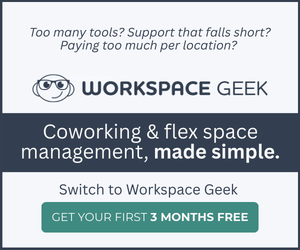According to a study from Knight Frank, 81% of UK businesses felt the need to incorporate a new workplace strategy as the culture of work continues to see a great shift due to the impact of the pandemic.
While the workplace and office functionality are continuously evolving, it’s abundantly clear that the last several months have marked a stark shift towards more flexibility and agile practices.
As a result, 47% of UK businesses say their real estate strategies will need to include more flexible or coworking workspaces, while 63% expect there to be an increased focus on office design.
It’s not only small businesses and startups that are realizing the necessity of adopting flexible space into their network of offices — corporations are also taking advantage of these workspaces.
For many business leaders, this is because the employee experience has never been more important. Instead of using a physical workspace based on cost and location, companies are realizing the importance of an environment that fosters creativity, collaboration, and innovation.
According to the study, collaboration is one factor that remains among the most important in the workplace. Navigating how to keep employees engaged with a hybrid workforce has proven to be a challenge though.
That’s why flexible space operators must prioritize the tools and resources to facilitate this type of work. For some, this may come in the form of apps that feature the ability to connect, book desks or meeting rooms, report issues, network with fellow members, and more.














